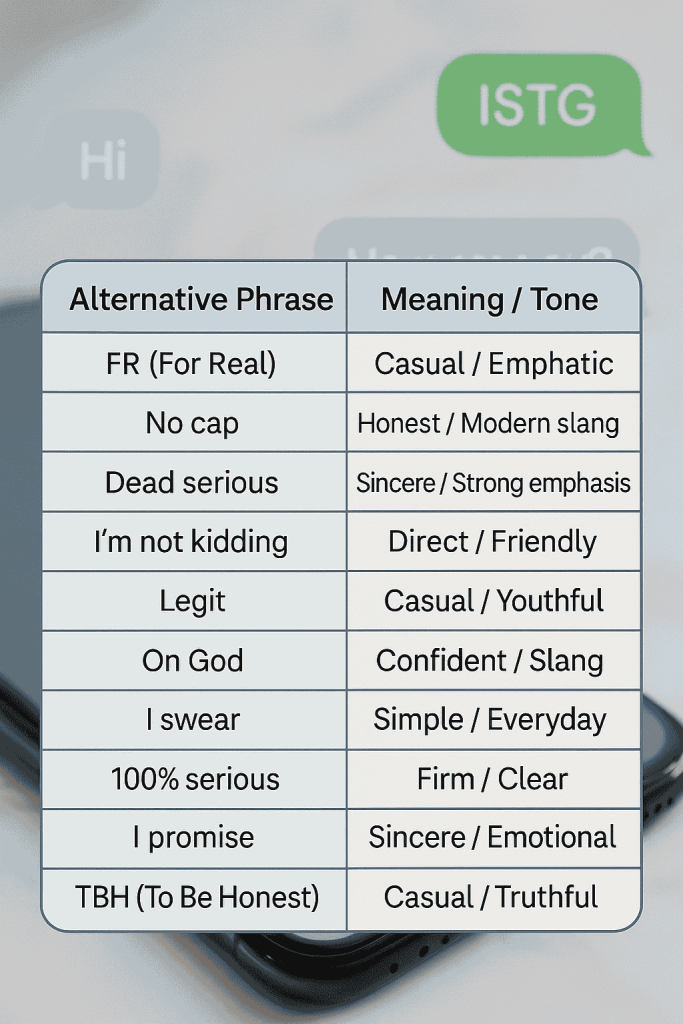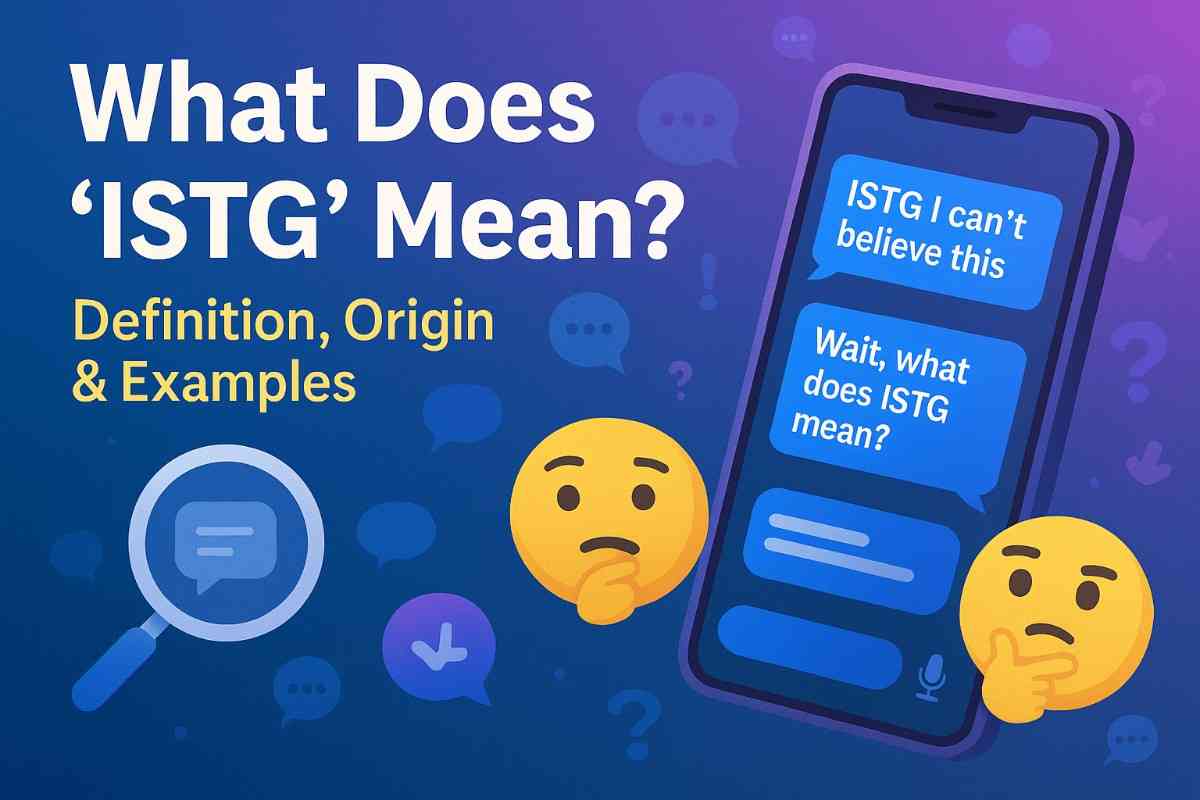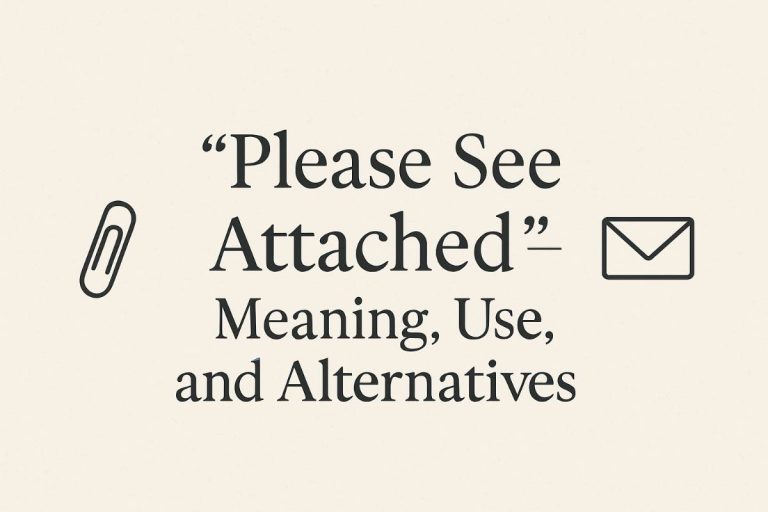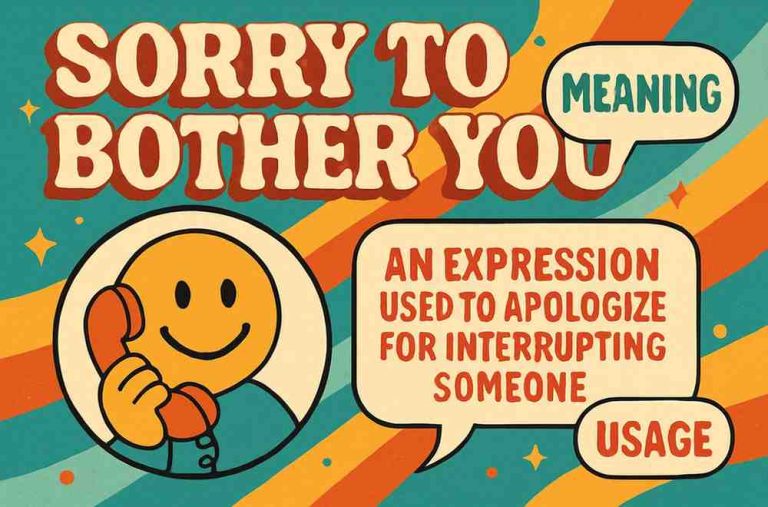What Does “ISTG” Mean? Definition, Origin & Examples
What Does “ISTG” Mean?
If you’ve ever seen someone type “ISTG” in a text or comment, you might have paused and thought, what does that mean? Like many internet acronyms, “ISTG” has become common across texting, social media, and everyday digital talk.
It looks casual, but its tone can range from serious to funny, depending on context. Some use it to express frustration. Others use it to emphasize emotion or make a point.
So what exactly does “ISTG” mean? Let’s break it down clearly and show how to use it naturally in conversation.
What Does “ISTG” Mean?
ISTG stands for “I swear to God.” It’s an abbreviation used to emphasize honesty, frustration, or disbelief.
People use “ISTG” when they’re making a strong statement or trying to convince someone they’re telling the truth.
Examples:
“ISTG, that test was impossible.”
“ISTG, if my phone dies again…”
The tone depends on the message. It can sound serious, funny, or even dramatic.
- Serious: “ISTG I didn’t mean to do that.”
- Playful: “ISTG if I see another ad today 😭.”
In texting, “ISTG” helps add feeling without writing a long sentence. It’s short, expressive, and works in casual chat.
It’s important to note that some people might avoid using it because it involves swearing by God — so be mindful when using it in certain contexts or with people who might find it inappropriate.
ISTG Meaning on Social Media Platforms
Like most slang, “ISTG” shows up differently across social platforms. Each one adds its own style and tone to how people use it.
1. ISTG on TikTok
On TikTok, “ISTG” often appears in captions, comments, or videos when users are reacting to something unbelievable or funny.
Example:
“ISTG this filter makes everyone look famous 😂.”
It’s part of the platform’s dramatic humor style. People use it to exaggerate emotions — shock, excitement, or disbelief.
2. ISTG on Twitter (X)
On Twitter, “ISTG” often appears in posts expressing frustration or opinion.
Example:
“ISTG people who don’t signal while driving should retake the test.”
Here, it adds emphasis — a way to express emotion in short text form.
3. ISTG on Instagram
On Instagram, “ISTG” might appear in stories, captions, or comment replies.
Example:
“ISTG I’ve been waiting for this drop all week.”
It’s casual and emotional, often used with emojis to show tone.
4. ISTG on Snapchat
Snapchat users often use “ISTG” in private chats.
Example:
“ISTG I’m about to fall asleep in class 😩.”
It’s casual, relatable, and fits the chatty tone of the app.
5. ISTG on Discord or Reddit
In group chats or forums, “ISTG” is often used for emphasis during debates or discussions.
Example:
“ISTG that’s not how the rule works!”
It adds intensity — especially in text-only conversations where tone isn’t obvious.
The Origin and History of the Phrase
The phrase “I swear to God” has been used in spoken language for centuries. It’s a way to emphasize truth or seriousness, often during emotional statements.
People used it in speech long before the internet. Over time, it became part of everyday slang — especially in dramatic or expressive conversation.
When texting and online chatting became popular in the late 1990s and early 2000s, abbreviations started replacing long phrases. Typing fast meant shortening words to save time.
That’s when “I swear to God” turned into ISTG.
It followed the same trend as other abbreviations like:
- OMG (Oh My God)
- SMH (Shaking My Head)
- IDK (I Don’t Know)
- LMAO (Laughing My A** Off)
By the mid-2010s, “ISTG” was common on social media, especially among teens and young adults. It became part of expressive online talk — less formal, more emotional, and often exaggerated for effect.
Now, “ISTG” is part of everyday digital vocabulary. It appears in tweets, texts, memes, and even online arguments.
When & Where to Use “ISTG”
“ISTG” works best in casual, expressive conversations. It’s not formal or professional. You’ll see it in chats, memes, and social posts — places where tone is playful, emotional, or dramatic.
Here’s when to use it:
1. When You’re Emphasizing Honesty
Use “ISTG” when you’re trying to convince someone you’re telling the truth.
Example:
“ISTG, I didn’t eat your fries!”
It shows sincerity and emotion.
2. When You’re Frustrated or Annoyed
“ISTG” helps express irritation or impatience.
Example:
“ISTG if this app crashes again…”
It’s not harsh, but it adds emotional weight.
3. When You’re Shocked or Surprised
Use it to react to unexpected or funny things.
Example:
“ISTG this can’t be real 😂.”
It’s often paired with emojis to show tone.
4. When You’re Being Playful or Dramatic
Sometimes, people use “ISTG” just for fun.
Example:
“ISTG I’m obsessed with this song 😍.”
It exaggerates your feelings, making the message more expressive.
5. When Not to Use It
Avoid using “ISTG” in formal writing, work emails, or messages with people you don’t know well. Because it involves swearing, it might offend some readers.
In those cases, stick with a neutral phrase like:
“Honestly…” or “I promise…”

Discover More: How to Say “Have a Good Evening” Politely and Naturally
Alternatives to “ISTG”
Depending on the situation, you can replace “ISTG” with similar expressions that fit your tone.
1. I Promise
Meaning: A direct way to assure someone of your honesty.
Explanation: Polite and works in both formal and informal settings.
Example: “I promise I’ll call you later.”
Best Use: Use it when you want to sound sincere but respectful.
2. For Real
Meaning: Used to confirm truth or seriousness.
Explanation: Sounds casual and friendly, often used in speech and text.
Example: “For real, that was the best movie I’ve seen.”
Best Use: Use it when chatting casually or reacting to something surprising.
3. No Cap
Meaning: Slang for “no lie” or “I’m serious.”
Explanation: Common in Gen Z slang and hip-hop culture.
Example: “That food was amazing, no cap.”
Best Use: Informal chats, tweets, or captions among younger audiences.
4. Honestly
Meaning: Used to emphasize sincerity or emotion.
Explanation: Versatile and polite — suitable for most situations.
Example: “Honestly, I can’t believe that happened.”
Best Use: Everyday conversations or casual writing.
5. I Mean It
Meaning: Used to add force or seriousness to what you’re saying.
Explanation: Slightly formal but still emotional.
Example: “I mean it — you’ve got this.”
Best Use: Friendly encouragement or firm statements.
6. I Swear
Meaning: The short version of “I swear to God.”
Explanation: Keeps the emphasis but sounds lighter.
Example: “I swear I didn’t see your text.”
Best Use: Texts or casual conversations when you want to sound serious but not too intense.
Simple and Polite Responses to “ISTG”
If someone sends you “ISTG,” your response depends on tone and context.
When They’re Being Honest
- “I believe you!”
- “Okay, I trust you.”
- “No worries, I get it.”
When They’re Frustrated
- “Take a breath, it’ll be fine.”
- “Yeah, that’s annoying.”
- “Same here, I know the feeling.”
When They’re Shocked or Amused
- “Right? That’s wild!”
- “I can’t believe it either 😂.”
- “Exactly! That’s what I thought.”
When They’re Being Playful
- “Haha, calm down 😅.”
- “ISTG you’re too dramatic.”
- “You’re so real for this 😂.”
If you’re unsure how they meant it, read their tone or use emojis to match their energy.
Example:
Them: “ISTG this traffic is killing me 😤.”
You: “Hang in there 😭 same here.”
It’s all about keeping the tone friendly and natural.
Conclusion
The acronym ISTG means “I swear to God.” It’s a short, expressive way to show honesty, frustration, or emotion online.
You’ll see it across platforms like TikTok, Twitter, and Snapchat — often in reactions, rants, or casual chats. It’s part of modern digital speech, where emotion and humor mix into quick, punchy phrases.
When you use “ISTG,” make sure it fits the tone of the conversation. With friends, it’s funny or relatable. In serious talks, it adds emphasis. But in formal settings, it’s best to skip it and use phrases like “I promise” or “honestly.”
Language keeps changing, and acronyms like ISTG show how emotion fits into short forms. They make messages more real, more human, and a little more expressive — all in just four letters.







